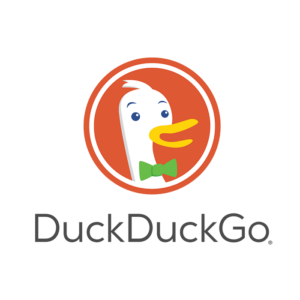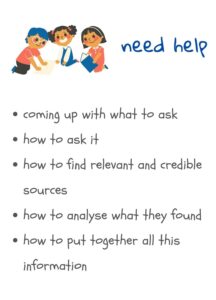Finding Information
Dr Kishore Mendam and Sushumna Rao
Activity
Pick a search engine from the list below:

Bing OneSearch
Brave Qwant
DuckDuckGo Spotlight
Ecosia Startpage
Google Swisscows
MetaGer Yahoo!
- Are the search results as good as other engines you use regularly?
- What are the search engine’s sources? Is it dependent on other search engines for its results?
- Read the About us and Privacy Policy or Terms of Use pages.
- According to these pages, what does the company do with your data? Can you change the default privacy settings?
Once done, please have a look here for a brief description of each engine.
సెర్చ్ ఇంజిన్ ( శోధన యంత్రాలు) అంటే మీ జేబులో ఉన్న కృత్రిమ మేధస్సు (ఏఐ). ఇది కృత్రిమమైన అత్యంత అధునాతన ఉపయోగం.
మనలో చాలా మంది రెగ్యులర్ గా ఉపయోగించే కృత్రిమ మేధస్సు తెలివితేటలు.
సెర్చ్ ఇంజిన్ల విజయానికి కారణం
- వరల్డ్ వైడ్ వెబ్ లో కంటెంట్ విస్ఫోటనం;
- సెర్చ్ ఇంజిన్ సామర్థ్యం అర్థం చేసుకోండి. ఈ కంటెంట్ మరియు భవిష్యత్తు శోధనల కోసం దీనిని ట్యాగ్ చేయండి (ఇండెక్సింగ్);
- దాని సామర్ధ్యం గ్రహించు* మీరు ఏమి అడుగుతున్నారు1;
- అత్యంత సంబంధిత కంటెంట్ ను మొదట చూపించే సామర్థ్యం (ర్యాంకింగ్).
కృత్రిమ మేధస్సు (AI) అల్గారిథమ్ లు మూడు చివరి కారకాలకు శక్తినిస్తాయి.
శోధన యంత్రాలు – నాలెడ్జ్ ఇంజిన్ లని ు కొందరు వాటిని పిలుస్తారు – ప్రపంచంలోని ప్రతిదీ వెబ్ లో ఉందని మరియు వెబ్ లో ప్రతిదీ శోధించదగినదనే భ్రమను సృష్టించడంలో విజయవంతమయ్యారు2.
బోధన మరియు అభ్యసనం ఉపకరణాలుగా శోధన యంత్రాలు(సెర్చ్ ఇంజిన్ లు)
ఉపాధ్యాయులు మరియు అభ్యాసకులకు శోధన యంత్రాలు (సెర్చ్ ఇంజిన్లు) సహాయపడటానికి కనీసం మూడు మార్గాలు ఉన్నాయి:
- పాఠాలు మరియు పరీక్షల్లో ఉపయోగించడం కోసం సమాచారాన్ని కనుగొనడం మరియు ధృవీకరించడం సులభతరం చేస్తుంది. ఈ నేపథ్యంలో గత దశాబ్ద కాలంలో సమాచారానికి అర్థంలో పెనుమార్పులు చోటుచేసుకున్నాయి. అలాగే టెక్ట్స్, ఆడియో, వీడియో, యానిమేషన్ మరియు సంకేత భాషలు కూడా ఇప్పుడు సులభంగా అందుబాటులో ఉన్నాయి. అలాగే శోధన ఫోరమ్ లు మరియు డిజిటల్ రిపాజిటరీలు కూడా ఉన్నాయి.
- జ్ఞానానికి ఏకైక వనరుగా ఉపాధ్యాయుడు ఉండవలసిన అవసరాన్ని తొలగిస్తుంది. ఉపాధ్యాయులు ఇప్పుడు నైపుణ్యాలను పెంపొందించుకోవడానికి, విచారణను ప్రేరేపించడానికి మరియు విభేదాలు మరియు సందేహాలను పరిష్కరించడానికి సహాయపడవచ్చు.
- సమాచార ప్రాప్యతను తెరవడం ద్వారా విద్యార్థులు అన్వేషణాత్మక మరియు ప్రాజెక్ట్ ఆధారిత అభ్యాసాన్ని చేయడానికి వీలు కల్పిస్తుంది. విద్యార్థులు సమాచారం నుండి ప్రాప్యత చేయవచ్చు, క్రమబద్ధీకరించవచ్చు మరియు వారి స్వంత అర్థాన్ని పొందవచ్చు. ఇది నేర్చుకోవడానికి దారితీస్తుంది మరియు నిజ జీవిత పరిస్థితులకు బదిలీ చేయవచ్చు3.
ఏదేమైనా, అన్వేషణాత్మక అభ్యాసం లేదా మరే ఇతర రకమైన విద్యార్థి నేతృత్వంలోని అభ్యాసం సులభంగా రాదు. విద్యార్థులకు వారి స్వంత సమాచార వనరులను శోధించడం మరియు కలపడంతో పాటు అనేక నైపుణ్యాల కోసం సహాయం అవసరం3.
What to ask and how to ask it

ఐరోపా మరియు తదుపరి రంగాలలో వివిధ అధ్యయనాలు విద్యార్థులు వెబ్ ను సమర్థవంతంగా మరియు సమర్థవంతంగా శోధించడానికి కష్టపడుతున్నారని చూపిస్తుంది3. వారి శోధన ఏమీ లేనప్పుడు లేదా శోధన ఫలితాల యొక్క ఔచిత్యాన్ని ఎలా అంచనా వేయాలో తెలియనప్పుడు వారు తరచుగా నిరాశ చెందుతారు4. చిన్న పిల్లలకు కంప్యూటర్లలో సమాచారం కోసం శోధించడంలో నాలుగు విభిన్న ఇబ్బందులు ఉన్నట్లు అనిపిస్తుంది: శోధన ప్రశ్నలను సృష్టించడం, శోధన జాబితా నుండి తగిన వెబ్సైట్ను ఎంచుకోవడం, శోధన పదాలను సరిగ్గా స్పెల్లింగ్ చేయడం మరియు శోధన ఫలితాలలో ఉపయోగించే భాషను అర్థం చేసుకోవడం5.
కొన్ని శోధన పద్ధతులను తెలుసుకోవడం మీకు మరియు మీ విద్యార్థులకు ఈ అద్భుతమైన వనరును ఉపయోగించడంలో సహాయపడుతుంది.
Optimising Search
- In a search engine of your choice, type search and look at the results. Compare them with the results of how to search or search tips. Now search for: how artificial intelligence is used in search engines?
- Compare the results of baked cheese recipes and “baked cheese” recipes. How can you know that searching for “East German” stories is better than East German stories without going beyond the first page of search results?
- Is Eat, Pray, Love the same as eat pray love?
- Try planet near jupiter. Find a restaurant close to the Eiffel Tower.
- What does artificial intelligence -“machine learning” do?
- What is the difference between the search queries “tom cruise” AND “john oliver” , and, “tom cruise” OR “john oliver”
- Compare the results of university of California and university of * California. What does * do?
- Try courses site bbc.com and courses site:bbc.com. Find courses in all websites that have a .edu web address(URL).
- Add filetype:pdf to any search query to learn its use.
Apart from practising good search techniques, it is always worthwhile to scroll down search results and check out pages beyond the first page. Search engines differ on how they rank results. The top results may not be based only on your search query and user activity. And not everyone knows how to write web pages that are optimised to show up in the top results.
To end our discussion here, please have a look at search settings, whatever search engine you like to use. They allow you to adjust how search results are shown and whether to set controls suitable for children, among other things.
Searching in pairs
Even after learning optimisation techniques, students may still have problems coining effective search terms and analysing the results. There is some evidence that searching in pairs or in groups of three can help. Discussing every step of an exercise can help students find better search strategies, correct the results and weigh what to do with the obtained information. Pairs may also be better at locating and judging information within sites when compared to individuals4.
* make sense of, understand, intelligent and other words are used in this text to describe the action of machines. It is important to bear in mind that machine based applications cannot make sense of or understand something in the same way humans do.
1 Russell, D., What Do You Need to Know to Use a Search Engine? Why We Still Need to Teach Research Skills, AI Magazine, 36(4), 2015
2 Hillis, K., Petit, M., Jarrett, K., Google and the culture of search, Routledge, 2013.
3 Marion Walton, M., Archer, A., The Web and information literacy: scaffolding the use of web sources in a project-based curriculum, British Journal of Educational Technology, Vol 35 No 2, 2004.
4 Lazonder, A., Do two heads search better than one? Effects of student collaboration on web search behaviour and search outcomes, British Journal of Educational Technology, Vol 36 Issue 3, 2005.
5 Vanderschantz, N., Hinze, A., Cunningham, S., “Sometimes the internet reads the question wrong”: Children’s search strategies & difficulties, Proceedings of the American Society for Information Science and Technology, Vol 51, Issue 1, 2014.

